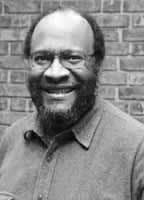Supreme Court Justice Antonin Scalia, probably the most conservative one on the bench, sided with three liberal justices in the recent DNA ruling. Scalia also finds himself in agreement with David Rocah of the Maryland American Civil Liberties Union.
The court voted 5-4 to uphold Maryland cops swabbing Alonzo King Jr. for a DNA sample back in 2009. King was apparently waving a shotgun around and was charged with assault with the weapon.
After his arrest for the assault, King’s DNA was eventually used to nail him on an unsolved rape charge from 2003. The poor loser was convicted of the rape and sentenced to life in prison.
None of that impressed Scalia, who smells a rat in claims that DNA will only be taken from suspects charged with violent crimes.
“If you believe that a DNA search will identify someone arrested for bank robbery,” Scalia said in a dissent that can only be described as blistering, “you must believe that it will identify someone arrested for running a red light. In the end, logic will win out. Make no mistake about it. Because of today’s decision, your DNA can be taken and entered into a national database if you are ever arrested, rightly or wrongly, for whatever reason.”
Justice Anthony Kennedy, writing for that slim five-justice majority, didn’t quite see it that way.
“When officers make an arrest supported by probable cause to hold for a serious offense and they bring the suspect to the station to be detained in custody,” Kennedy wrote, “taking and analyzing a cheek swab of the arrestee’s DNA is, like fingerprinting and photographing, a legitimate police booking procedure that is reasonable under the Fourth Amendment.”
I’ll cut right to the chase: Scalia is right on this one, and Kennedy is so very wrong. There’s a difference— a huge one— between being either fingerprinted or photographed and having your cheek swabbed for DNA.
First, there is that invasion of a bodily orifice thing. Fingerprinting doesn’t involve that. There is just some ink put on an arrestee’s fingers, which can then be cleaned off.
There is no invasion of a bodily orifice involved in photographing an arrestee either. But the cheek swab involves a representative of the state— without the arrestee’s consent— opening the mouth and swabbing the cheek of a suspect.
That, Mr. Kennedy, is called a classic invasion of privacy.
Then there is this: a person’s DNA reveals details that fingerprints and photographs never could. A person’s DNA is highly personal. It belongs to him or her, not to the state.
If it is to be shared with the state, then it should be done with that person’s consent, not dragged from an unwilling arrestee.
Isn’t Kennedy the trusting soul to really believe that DNA samples will only be collected from those suspected of committing violent crimes?
Kennedy sounds like a guy who has watched one too many cop shows on TV. You know, the ones where police NEVER violate any suspect’s civil liberties or civil rights, the ones where cops ALWAYS read a suspect his Miranda rights, the ones where cops never frame a suspect or lie under oath.
It is at this point I must extend to Mr. Justice Kennedy my invitation to rejoin those of us living in the real world. I invite him to look at Baltimore, where under the regime of then-Mayor Martin O’Malley the Baltimore Police Department made illegal Terry stops numbering in the hundreds.
I invite Kennedy to look at New York City, where, under Mayor Michael “Enemy of Liberty” Bloomberg, police have made thousands of what a federal judge called “suspicionless” stops and searches in a flagrant abuse of the Big Apple’s stop-and-frisk laws.
The law that says police can take DNA samples from those suspected of “violent” crimes is subject to abuse. And here’s what we know about government, especially the law enforcement part of it: Government will definitely abuse.
